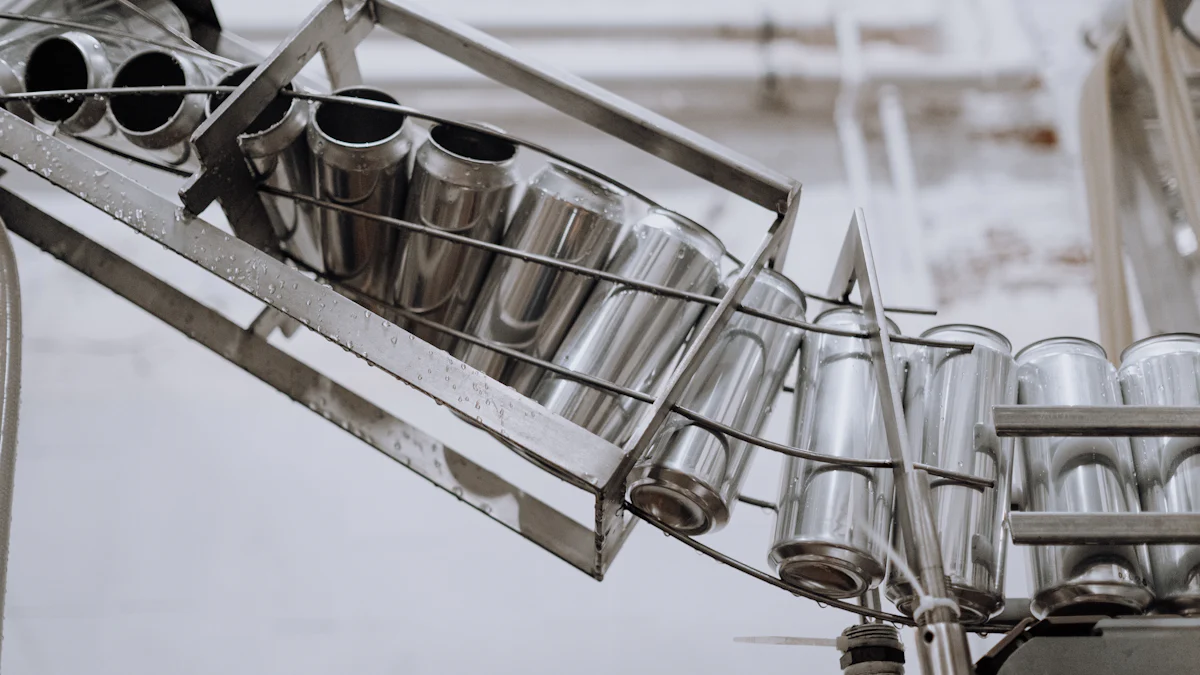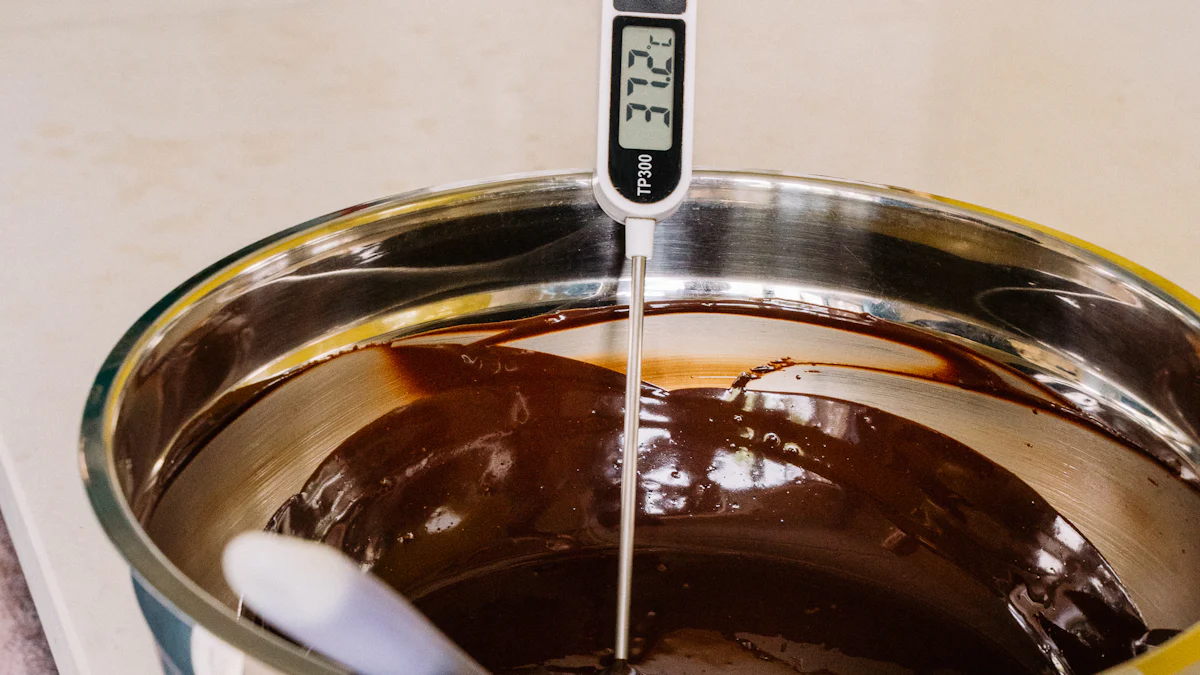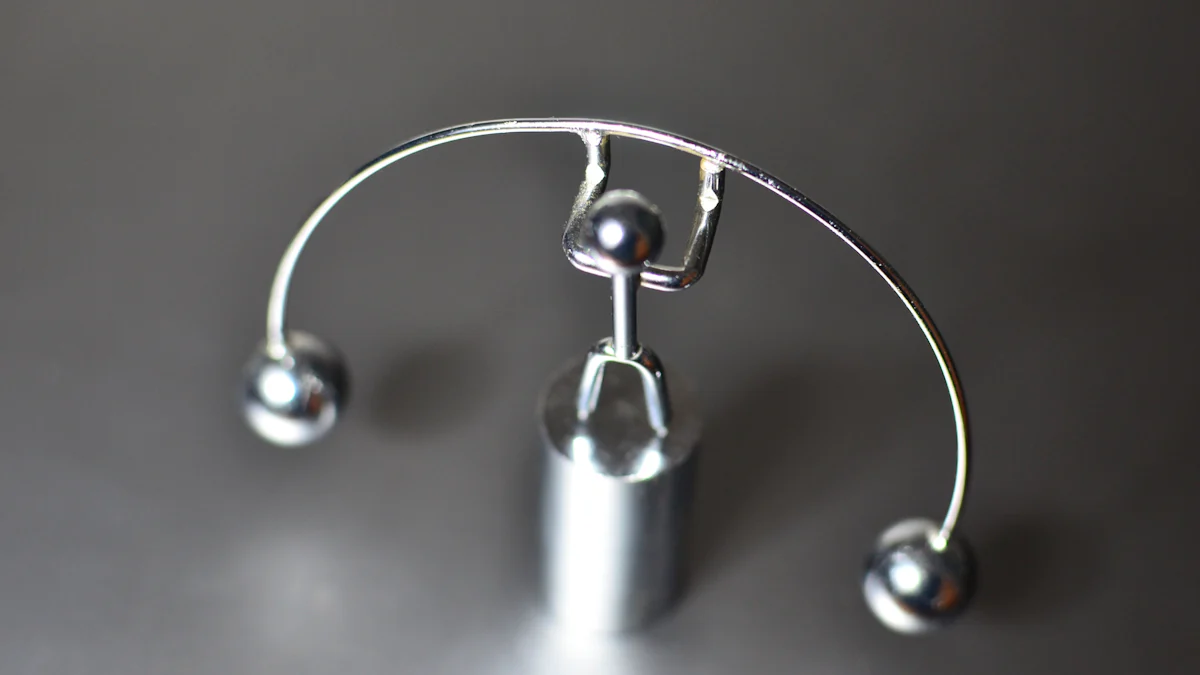
Nickel-free stainless steel offers a safe and reliable solution for anyone dealing with nickel allergies or sensitivities. Unlike traditional stainless steel, it eliminates the risk of skin irritation caused by nickel exposure. You’ll find it increasingly popular in industries like jewelry, cookware, and medical equipment. Its unique composition ensures durability and safety without compromising on performance. Whether you’re looking for hypoallergenic accessories or safer kitchen tools, this material provides peace of mind and exceptional quality.
Key Takeaways
- Nickel-free stainless steel is an ideal choice for individuals with nickel allergies, providing a hypoallergenic alternative that prevents skin irritation.
- This material is highly durable and corrosion-resistant, making it a long-lasting option for cookware, utensils, and jewelry.
- Choosing nickel-free stainless steel contributes to environmental sustainability by avoiding nickel, which can be harmful during mining and processing.
- Look for grades like 430 stainless steel (18/0) to ensure you are selecting nickel-free products for your home or personal use.
- Nickel-free stainless steel is often more affordable than regular stainless steel, offering a cost-effective solution without compromising quality.
- This material is safe for cooking, as it does not leach nickel into food and is non-reactive with acidic ingredients.
- Proper maintenance, such as gentle cleaning and drying, can significantly extend the lifespan of nickel-free stainless steel products.
What Is Nickel-Free Stainless Steel?
Definition and Composition
Nickel-free stainless steel is a type of stainless steel that doesn’t contain nickel in its composition. Instead, it relies on other elements like chromium, molybdenum, and nitrogen to maintain its strength and resistance to corrosion. These elements work together to create a durable and safe material. One common example is 430 stainless steel, which is often referred to as 18/0 stainless steel. The “18” represents the percentage of chromium, while the “0” indicates the absence of nickel. This unique composition makes it a great choice for people who need an alternative to traditional stainless steel.
Why It Matters for Nickel Allergies
If you have a nickel allergy, even small amounts of nickel can cause skin irritation, rashes, or other allergic reactions. Many everyday items, like jewelry, cookware, and medical tools, contain nickel. This can make it hard to avoid exposure. Nickel-free stainless steel offers a solution. It eliminates the risk of nickel-related allergies while still providing the durability and functionality you expect from stainless steel. You can wear accessories, use kitchen tools, or even rely on medical implants made from this material without worrying about allergic reactions.
Common Nickel-Free Grades (e.g., 430 Stainless Steel)
Several grades of stainless steel fall into the nickel-free category. The most popular is 430 stainless steel, also known as 18/0 stainless steel. This grade is widely used in cookware, kitchen utensils, and even flatware. It’s affordable, corrosion-resistant, and safe for individuals with nickel sensitivities. Another option is ferritic stainless steel, which also avoids nickel in its composition. These grades may not have the same flexibility as austenitic stainless steels, but they excel in applications where nickel-free properties are essential. When choosing products, look for these grades to ensure you’re getting a nickel-free option.
Benefits of Nickel-Free Stainless Steel

Hypoallergenic and Safe for Sensitive Skin
Nickel-free stainless steel is a game-changer if you have sensitive skin or a nickel allergy. It eliminates the risk of irritation, rashes, or discomfort caused by nickel exposure. You can wear jewelry, use utensils, or handle tools made from this material without worrying about allergic reactions. This makes it an excellent choice for everyday items like earrings, bracelets, or even watches. By choosing nickel-free options, you prioritize your comfort and well-being.
Corrosion Resistance and Durability
You want materials that last, and nickel-free stainless steel delivers. Its high chromium content ensures excellent resistance to rust and corrosion. This means your cookware, kitchen tools, or outdoor equipment can withstand moisture and regular use without degrading. The durability of this material also means fewer replacements, saving you money in the long run. Whether you’re cooking, working, or accessorizing, you can count on its strength and reliability.
Environmental and Health Advantages
Nickel-free stainless steel offers benefits beyond personal use. It’s a more sustainable option because it avoids nickel, a metal that can harm the environment during mining and processing. Additionally, this material reduces the risk of nickel leaching into food or beverages, making it a safer choice for your health. By opting for nickel-free products, you contribute to a healthier planet and protect yourself from potential toxins. It’s a win-win for you and the environment.
How Does Nickel-Free Stainless Steel Compare to Regular Stainless Steel?
Differences in Composition and Properties
Nickel-free stainless steel and regular stainless steel differ in their makeup. Regular stainless steel often contains nickel, which enhances its flexibility and shine. In contrast, nickel-free stainless steel relies on elements like chromium, molybdenum, and nitrogen to achieve strength and corrosion resistance. These differences affect how each type performs. Nickel-free options are hypoallergenic, making them ideal for people with sensitive skin. Regular stainless steel, however, offers more versatility in shaping and polishing due to the presence of nickel. If you prioritize safety and comfort, nickel-free stainless steel stands out as the better choice.
Performance in Various Applications
The performance of these two types of stainless steel depends on where you use them. Nickel-free stainless steel works best for items like jewelry, cookware, and medical tools. It provides durability and safety without causing allergic reactions. Regular stainless steel, with its added nickel, excels in applications requiring high flexibility or a polished finish, such as architectural designs or decorative items. For everyday use, nickel-free stainless steel offers peace of mind and reliability. It’s especially valuable in environments where health and safety take priority.
Cost and Availability
When it comes to cost, nickel-free stainless steel is often more affordable than its nickel-containing counterpart. Grades like 430 stainless steel are widely available and budget-friendly. Regular stainless steel, particularly high-end grades with nickel, tends to be pricier due to its enhanced properties. Availability also varies. Nickel-free options are common in cookware, utensils, and hypoallergenic jewelry. Regular stainless steel dominates industries like construction and automotive manufacturing. If you’re shopping for household or personal items, you’ll likely find nickel-free stainless steel both accessible and economical.
Common Applications of Nickel-Free Stainless Steel

Jewelry and Accessories for Sensitive Skin
If you’ve ever struggled with skin irritation from wearing jewelry, nickel-free stainless steel can be a lifesaver. This material is perfect for creating hypoallergenic jewelry that’s safe for sensitive skin. Earrings, necklaces, bracelets, and even watches made from nickel-free stainless steel let you enjoy stylish accessories without worrying about rashes or discomfort. Its durability ensures your jewelry stays beautiful over time, even with daily wear. Plus, it’s easy to clean, so your pieces always look polished and fresh.
Medical Equipment and Implants
Nickel-free stainless steel plays a vital role in the medical field. It’s used to make surgical tools, implants, and other medical devices that come into direct contact with the body. If you need a medical implant, this material reduces the risk of allergic reactions, ensuring safety and comfort. Its high resistance to corrosion makes it reliable for long-term use inside the body. Whether it’s a surgical instrument or a dental implant, nickel-free stainless steel provides the strength and biocompatibility needed for critical medical applications.
Cookware and Kitchen Utensils
Your kitchen deserves materials that are both safe and durable, and nickel-free stainless steel fits the bill. Cookware like pots, pans, and baking sheets made from this material ensures no nickel leaches into your food. This makes it a healthier choice for you and your family. Kitchen utensils, such as spatulas and ladles, crafted from nickel-free stainless steel, offer excellent resistance to rust and wear. They’re also easy to maintain, so you can focus on cooking without worrying about harmful substances. Whether you’re a home cook or a professional chef, this material enhances your kitchen experience.
Industrial and Construction Uses
Nickel-free stainless steel has become a reliable choice in industrial and construction settings. Its unique properties make it suitable for demanding environments where durability and safety are essential. You’ll find it used in various applications that require strength, corrosion resistance, and a nickel-free composition.
In construction, nickel-free stainless steel works well for structural components like beams, panels, and railings. Its high chromium content ensures excellent resistance to rust, even in outdoor or humid conditions. This makes it a great option for projects like bridges, building facades, and roofing systems. You can count on its longevity, which reduces the need for frequent repairs or replacements.
For industrial purposes, this material shines in equipment and machinery exposed to harsh chemicals or extreme temperatures. Factories and processing plants often use nickel-free stainless steel for tanks, pipes, and fittings. Its ability to withstand corrosion ensures smooth operations and minimizes downtime. If you work in an industry where hygiene is critical, such as food processing or pharmaceuticals, this material also meets strict cleanliness standards.
Another advantage is its affordability compared to nickel-containing stainless steel. You can achieve cost savings without sacrificing performance. Plus, its eco-friendly nature aligns with sustainable building practices, making it a smart choice for modern construction projects.
Whether you’re designing a skyscraper or maintaining industrial equipment, nickel-free stainless steel offers the strength and reliability you need. It’s a practical solution that balances performance, safety, and cost-effectiveness.
Is Nickel-Free Stainless Steel Safe and Durable?
Safety for Food Preparation and Cooking
When it comes to preparing meals, safety should always come first. Nickel-free stainless steel offers a reliable option for cookware and utensils. It eliminates the risk of nickel leaching into your food, which can happen with other types of stainless steel. This makes it a healthier choice, especially if you or your family members have nickel allergies. You can confidently use pots, pans, and baking sheets made from this material without worrying about harmful substances affecting your meals.
Another advantage is its non-reactive nature. Nickel-free stainless steel doesn’t interact with acidic foods like tomatoes or citrus, ensuring the flavors of your dishes remain pure. Whether you’re simmering a sauce or baking a cake, this material keeps your food safe and delicious. Its smooth surface also makes cleaning easier, reducing the chances of bacteria buildup. For a safer and more enjoyable cooking experience, nickel-free stainless steel is a smart choice.
Longevity and Maintenance Tips
Durability is one of the standout features of nickel-free stainless steel. With proper care, your cookware, utensils, or tools can last for years. To maintain their quality, follow a few simple tips. Always wash your items with mild soap and warm water after use. Avoid abrasive scrubbers that could scratch the surface. If you notice stubborn stains, a mixture of baking soda and water works wonders for gentle cleaning.
Drying your items immediately after washing prevents water spots and keeps them looking polished. For cookware, avoid overheating empty pans, as this can damage the material over time. Storing your nickel-free stainless steel products properly also extends their lifespan. Use soft cloths or liners between stacked items to prevent scratches. By taking these steps, you ensure your items remain in excellent condition for years to come.
Resistance to Rust and Wear
Nickel-free stainless steel stands out for its impressive resistance to rust and wear. Its high chromium content forms a protective layer on the surface, shielding it from moisture and oxygen. This makes it ideal for environments where exposure to water or humidity is common. You can use it in the kitchen, outdoors, or even in industrial settings without worrying about corrosion.
This material also holds up well under regular use. Whether you’re stirring, cutting, or cooking, it resists scratches and dents better than many alternatives. Its durability means fewer replacements, saving you money in the long run. Even with daily use, nickel-free stainless steel maintains its strength and appearance. If you want a material that combines safety, longevity, and reliability, this is an excellent choice.
How to Identify and Choose Nickel-Free Stainless Steel
Recognizing Nickel-Free Grades and Standards
When shopping for nickel-free stainless steel, understanding the grades and standards can help you make informed decisions. Look for grades like 430 stainless steel, often labeled as 18/0 stainless steel. The “18” refers to the chromium content, while the “0” confirms the absence of nickel. This grade is a popular choice for cookware, utensils, and hypoallergenic jewelry.
Ferritic stainless steels are another category to consider. These steels avoid nickel entirely and rely on elements like chromium and molybdenum for strength and corrosion resistance. You’ll often find these grades in kitchen tools and medical equipment. Familiarizing yourself with these terms ensures you can confidently identify products that meet your needs.
Certifications to Look For
Certifications provide an extra layer of assurance when selecting nickel-free stainless steel. Look for labels or documentation that confirm the product complies with safety and quality standards. For example, the EU Nickel Directive ensures that products meet strict limits on nickel release, making them safe for individuals with allergies.
In the United States, products may carry certifications from organizations like ASTM International or ISO. These certifications verify the material’s composition and performance. If you’re buying cookware, check for food-grade certifications to ensure the product is safe for cooking and won’t leach harmful substances into your meals. Paying attention to these details helps you choose reliable and high-quality items.
Tips for Purchasing High-Quality Products
Finding the right nickel-free stainless steel products doesn’t have to be complicated. Start by researching reputable brands known for offering hypoallergenic or nickel-free options. Reading customer reviews can also give you insights into the product’s quality and performance.
When shopping in stores, ask questions about the material’s composition. Sales representatives should be able to confirm whether the product contains nickel. If you’re buying online, check the product description carefully. Look for terms like “nickel-free,” “18/0 stainless steel,” or specific grades like 430 stainless steel.
Inspect the product for signs of quality. A smooth, polished surface often indicates good craftsmanship. Avoid items with rough edges or uneven finishes, as these may not meet high standards. Investing in well-made products ensures durability and long-term satisfaction.
By following these steps, you can confidently choose nickel-free stainless steel that suits your lifestyle and preferences.
Nickel-free stainless steel offers a perfect blend of safety, durability, and versatility. It protects you from nickel allergies while delivering reliable performance in jewelry, cookware, and medical tools. This material stands out as a healthier choice for you and the environment. When selecting products, focus on grades like 430 stainless steel and look for certifications that guarantee quality. By choosing nickel-free options, you prioritize your well-being and enjoy long-lasting, hypoallergenic solutions for everyday use.
FAQ
What is nickel-free stainless steel made of?
Nickel-free stainless steel contains elements like chromium, molybdenum, and nitrogen. These elements replace nickel to provide strength, durability, and corrosion resistance. For example, 430 stainless steel, also known as 18/0 stainless steel, has 18% chromium and no nickel.
How can I tell if a product is nickel-free?
Look for labels or descriptions that mention “nickel-free” or “18/0 stainless steel.” Check the product specifications for grades like 430 stainless steel. Certifications such as compliance with the EU Nickel Directive can also confirm the absence of nickel.
Is nickel-free stainless steel safe for people with allergies?
Yes, it’s an excellent choice for individuals with nickel allergies. It eliminates the risk of skin irritation, rashes, or allergic reactions caused by nickel exposure. You can safely use it for jewelry, cookware, and even medical implants.
Does nickel-free stainless steel rust easily?
No, it resists rust due to its high chromium content. Chromium forms a protective layer on the surface, preventing moisture and oxygen from causing corrosion. Proper care, like drying items after washing, enhances its rust resistance.
Is nickel-free stainless steel as durable as regular stainless steel?
Yes, it’s highly durable. While it may lack the flexibility of nickel-containing stainless steel, it still offers excellent strength and longevity. It withstands daily use in cookware, utensils, and industrial applications without losing its quality.
Can I use nickel-free stainless steel for cooking acidic foods?
Absolutely! Nickel-free stainless steel is non-reactive, so it won’t interact with acidic foods like tomatoes or citrus. This ensures your food retains its natural flavors and stays safe to eat.
Is nickel-free stainless steel more expensive than regular stainless steel?
Nickel-free stainless steel is often more affordable, especially grades like 430 stainless steel. It provides a cost-effective option for cookware, utensils, and jewelry without compromising on quality or safety.
What are the most common uses of nickel-free stainless steel?
You’ll find it in jewelry, cookware, kitchen utensils, medical equipment, and industrial tools. It’s popular for items that require hypoallergenic properties, corrosion resistance, and durability.
How do I maintain nickel-free stainless steel products?
Wash them with mild soap and warm water. Avoid abrasive scrubbers to prevent scratches. Dry items immediately after washing to prevent water spots. For stubborn stains, use a baking soda and water paste for gentle cleaning.
Why should I choose nickel-free stainless steel over regular stainless steel?
Nickel-free stainless steel offers hypoallergenic properties, making it safe for sensitive skin. It prevents nickel leaching into food, ensuring safety during cooking.
